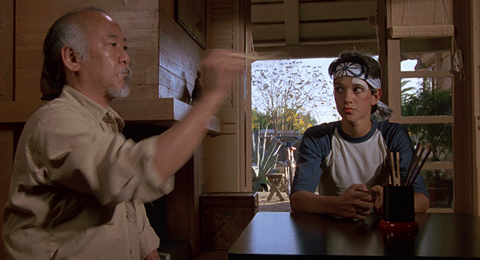#09 You do not have to be good.
Meanwhile the world goes on.
Society will push you to fit in, to obey the rules, to not stand out. Do the right things, follow the right procedures, check the right to-do lists — then we can tell you that you are good.
Of course, that would lead to a predictable, risk-reduced life. Most importantly, it allows you to transfer the agency of your own life into others’ sphere; “well, I did everything that was expected of me, so it’s not really my fault how things turned out.”
The thing is, that for the most part, we have been conditioned to do these things, to think these things, and to want these things. But, as poet Mary Oliver says, “you do not have to be good.”
True Freedom
I have recently attended a zen-mindfulness silent retreat, and the learning that stuck with me the most is that true freedom comes from not having conditioned responses.
(Staying silent for six days is incredible to flush out all the conditioning we have.)
The most obvious and direct example I had during the retreat was dealing with mosquitos. My conditioning is that mosquitos are bad, and when they land on you, you have to get them off (dead or alive…). So whenever I was meditating and a mosquito would land or buzz, I would stop everything and solve it. And I thoght that the mosquitos were getting in my way of proper meditation. Over time, I realized that this conditioning was not benefitting me — that they were not in my way, but they were the way of better meditation (after all, they only happen in the present); I started consciously choosing to use them as a mindfulness focus and my practice became much better.
We default to choices by anxiety (the social discomfort for not following the norms; the dread of questioning authority; the buzzing of the mosquitos, etc.) and rewards (praise our kids by behaving well; social acceptance for using the right language and clothes; the relief on the skin, etc.).
The Paradox of Unconditioned Response
The Anxiety-Reward Loop is a powerful trap. Not following the expectations create anxiety, and when we relieve that tension it generates relief (negative reinforcement) and a positive reward (belonging, accomplishment, etc.).
And the loop is made even stronger due to our brains’ energy conservation function. Dealing with the anxiety and uncertainty of breaking the norm demands energy. (It was incredible to see how exhausted I was by the end of the day after “just” meditating - even if over ten hours per day.) Breakign free from the Anxiety-Reward loop demands enormous amounts of energy — being present in the moment, actively thinking, weighing options, tolerating uncertainty and ambiguity, and (possibly) creating new neural pathways.
So there’s the double-whammy of the Anxitey-Reward Loop and the Energy Conservation Function. The paradox of unconditioned response comes from the fact that, to be truly free, we would have to treat every new moment as a complete fresh start — which would lead us to the impractical life of rejecting language and meaning at every breath.
The Solving of The Paradox: Shoshin
Zen practitioners would point to shoshin, or “beginner’s mind" (beginner’s heart would be the appropriate translation) — taking every new situation with fresh awareness. And that’s the key — awareness.
It would be highly impractical to spend the day thinking about your breathing, but when you do, the experience changes radically because of the awareness. The same can be done to all the activities we also do on autopilot: supermarket runs, email responses, who to marry, when to praise the kids, etc. Bringing awareness will change the perception, put the autopilot on hold, and allow you to respond rather than react.
WIIFM
Responding to life from a place of awareness will allow you to, as Mary Oliver puts it, “let the soft animal of your body love what it loves.”
And that, in my book, is true freedom.
Poet’s Corner
You do not have to be good.
You do not have to walk on your knees
for a hundred miles through the desert repenting.You only have to let the soft animal of your body
love what it loves.Tell me about despair, yours, and I will tell you mine.
Meanwhile the world goes on.
Meanwhile the sun and the clear pebbles of the rain
are moving across the landscapes,
over the prairies and the deep trees,
the mountains and the rivers.Meanwhile the wild geese, high in the clean blue air,
are heading home again.
Whoever you are, no matter how lonely,
the world offers itself to your imagination,
calls to you like the wild geese, harsh and exciting
-over and over announcing your place
in the family of things.
Wild Geese
Mary Oliver




For me, the most intriguing part of "breaking the rules” is patiently witnessing the mind-blowing effect it has on others. Most people find it hard to accept that different paths exist - and that it’s perfectly fine to follow them =)
Brilliant piece! I too find that mosquitos and are great teachers for the meditator ^^